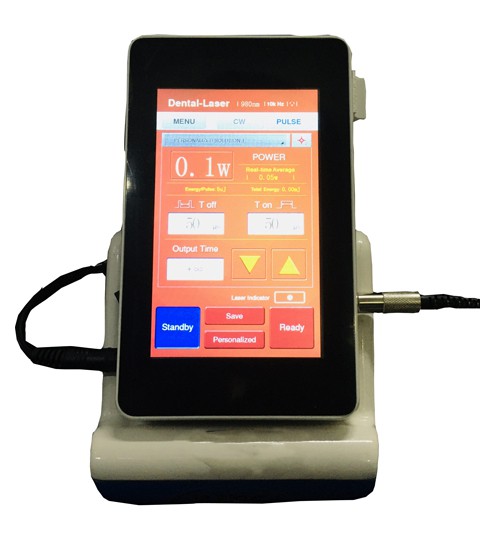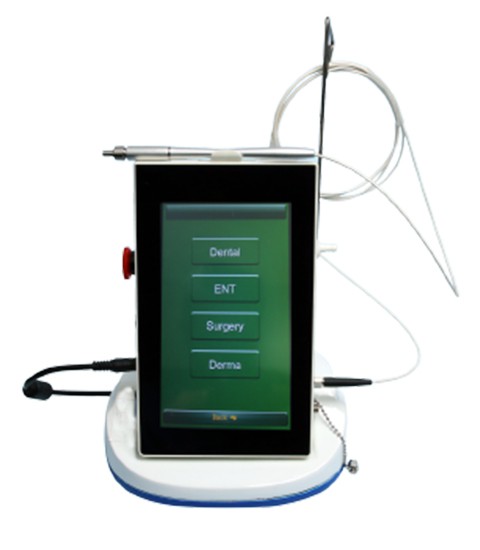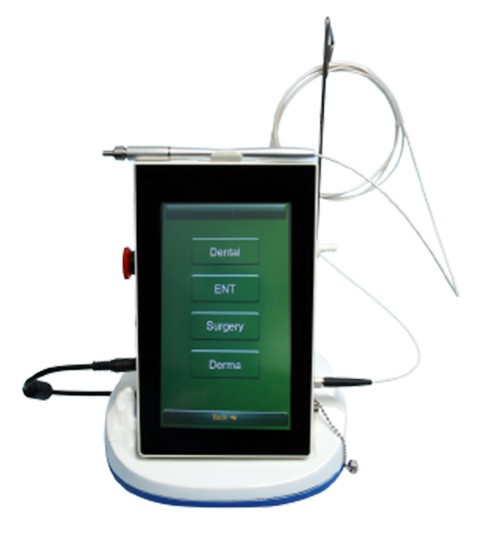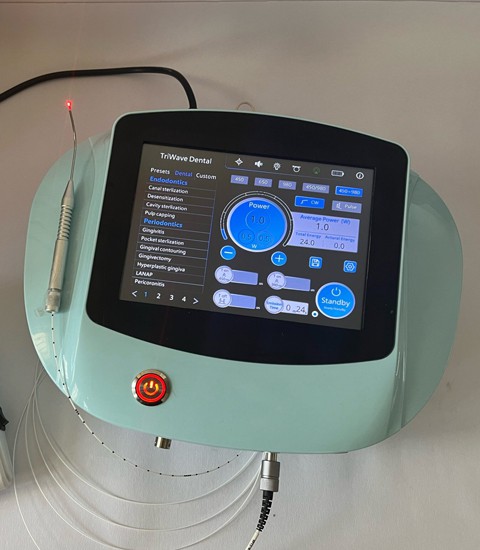Transform Your Practice Today
Dental Laser Manufacturers & Suppliers in North West Delhi
Dental laser technology has revolutionized the field of dentistry by introducing minimally invasive, highly precise, and patient-friendly solutions for various dental treatments. Unlike traditional dental instruments, lasers use highly concentrated light energy to perform surgical and therapeutic procedures with increased accuracy and minimal discomfort.
Lasers are now widely used for both hard tissue (teeth) and soft tissue (gums, oral mucosa) procedures, providing dentists with an advanced tool for cavity treatment, gum reshaping, teeth whitening, and more. Their ability to reduce pain, bleeding, and recovery time has made them a preferred choice in modern dental clinics.
How Do Dental Lasers Work?
Dental lasers work by emitting a focused beam of light energy, which interacts with targeted tissues, either cutting, vaporizing, or reshaping them without direct contact. This technology offers high precision and control, minimizing damage to surrounding tissues.
Depending on the wavelength and power settings, lasers can be used for various dental applications, such as:
- Soft Tissue Procedures – Reshaping gums, removing lesions, and treating periodontal diseases.
- Hard Tissue Procedures – Cutting or etching enamel, cavity preparation, and tooth sensitivity treatment.
- Teeth Whitening – Activating bleaching agents for faster and more effective results.
With continuous advancements in laser dentistry, these procedures have become safer, more efficient, and less invasive, making them a game-changer in modern oral healthcare.
Importance of Lasers in Modern Dentistry
The integration of lasers into dental treatments has significantly transformed the way dental care is delivered. Below are some of the key reasons why lasers are crucial in modern dentistry:
1. Minimally Invasive Treatments
Traditional dental procedures often involve drilling, cutting, and suturing, which can cause discomfort and prolonged recovery times. Lasers offer a non-invasive alternative, reducing the need for anesthesia and minimizing post-operative pain.
2. Increased Precision & Accuracy
Lasers allow dentists to target specific areas with exceptional accuracy, preserving more of the healthy surrounding tissue. This results in better aesthetic outcomes and improved healing.
3. Reduced Bleeding & Faster Healing
Since lasers cauterize blood vessels while cutting through tissues, they help in reducing bleeding during and after the procedure. This promotes faster healing and decreases the risk of post-surgical complications.
4. Lower Risk of Infection
The high-energy laser beam sterilizes the treated area, eliminating bacteria and reducing the risk of infections. This makes laser procedures highly effective in treating gum diseases and other oral infections.
5. Improved Patient Comfort
For patients with dental anxiety, laser treatments offer a gentle and pain-free experience compared to traditional methods. Many laser procedures require little to no anesthesia, making the dental visit more comfortable and stress-free.
Key Applications of Dental Lasers
Dental lasers have a wide range of applications in dentistry, improving both treatment efficiency and patient experience. Some of the most common uses include:
1. Cavity Detection & Treatment
Laser technology can be used to detect early-stage cavities, allowing dentists to perform minimally invasive treatments before the decay progresses. Erbium lasers are also effective in removing cavities without the need for a drill.
2. Gum Disease Treatment
Lasers are widely used in periodontal therapy, helping to remove infected tissue and bacteria without damaging healthy gums. This technique is known as Laser-Assisted Periodontal Therapy (LAPT).
3. Teeth Whitening
Dental lasers enhance teeth whitening procedures by activating the bleaching agents more effectively, leading to faster and longer-lasting results.
The Future of Laser Dentistry
The demand for laser-assisted dental treatments is rapidly growing due to their numerous benefits and improved patient experience. As technology continues to advance, we can expect:
- More Affordable Laser Equipment – Making it accessible to smaller dental clinics
- Improved Laser Precision & Efficiency – Enhancing treatment outcomes
- Integration with AI & Robotics – For more automated dental procedures
- Greater Acceptance in Dental Education – More dental schools incorporating laser training
With these advancements, laser dentistry will continue to shape the future of modern oral healthcare, providing pain-free, precise, and highly effective treatments.
Dental Laser Featured Products
What our customers are
talking about us

Dr. Anil Mehta, DDS
Dental SurgeonThe soft tissue laser from A2Z Medical Lasers has completely transformed my dental practice. It allows for precise, painless procedures with minimal healing time. My patients love the comfort...

Dr. Priya Sharma
Colorectal SurgeonUsing A2Z’s proctology laser for hemorrhoid treatment has significantly improved my success rates. The precision and reduced recovery time make it an essential tool in my practice

Dr. Rahul Verma
ENT SpecialistThe ENT laser system from A2Z Medical Lasers has set a new standard in my procedures. It ensures clean cuts, less bleeding, and faster healing, improving patient outcomes tremendously.

Dr. Sara Fernandes
GynecologistA2Z’s gynecological lasers have revolutionized vaginal rejuvenation treatments in my clinic. My patients report better comfort, confidence, and satisfaction with the results.

Dr. Vikram Raj
Orthopedic SurgeonThe therapeutic laser for orthopedic treatments has been a game-changer. It accelerates healing, reduces inflammation, and helps my patients recover faster from injuries.



